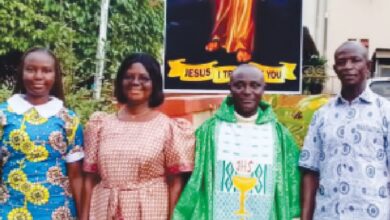Kudos, Electoral Commission, for Listening to the Voice of the Electorate
The decision by the Electoral Commission (EC) to rescind its earlier position and now move this year’s Presidential and Parliamentary elections from November to December is most commendable. Equally commendable is the EC’s decision NOT to do away with the use of indelible ink to mark fingers of voters at the ballot.
In its earlier proposal of the November time schedule, the EC had cited the necessity of timeliness for a possible run-off, the demands of the transitional processes toward a January 7, 2025 handover, and the timely, formal inauguration of the elected President and Members of Parliament, as mandated by the Constitution.
Indeed, some political parties had expressed misgivings about their preparedness and that of the country to meet the demands of elections, if held in November, citing concerns about logistical and campaign preparedness, including the necessary legislative greenlights required for implementation.
The Catholic Standard is particularly happy that the EC has listened to the voice of the people, being the voice of God (Vox populi, vox Dei). That apart, the EC’s sensitivity and responsiveness is what democracy is all about. Democracy, literally meaning “rule by the people and for the people,” is one democratic empowerment tool for citizens to exercise political control over the form and substance in their own governance, and to exact accountability from duty-bearers.
If it must be stated for the sake of emphasis, the EC’s credibility in the forthcoming general elections is inextricably linked up with the perceived credibility of all electoral processes leading up to, during and after the December Presidential and Parliamentary elections. Unlike previous years, this year’s elections are marked by three ominous, but related factors. The first is the prevailing deep mistrust between the two dominant political parties: the National Democratic Congress (NDC) and the National Patriotic Party NPP); the second is the electorate’s disappointment with democratic dividends; and the third is the degree of unprecedented partisan competitiveness between the NDC and the NPP, as two major contenders.
As we head toward the December elections, the NPP and the NDC have not left anybody in doubt that they do not trust each other a bit, as parties. Partisan private gain is dressed in campaign pledges as public good. Their current campaign messages are couched in inflammatory propaganda nothingness, with each Party accusing the other of wrongdoings, past and current. The NPP’s expressed desire “to break the eight’ is forcefully countered by the NDC’s sense of ‘entitled succession after the eight’.
The EC, going forward, has the onerous task of projecting certain defining and time-tested elements of election credibility, namely inclusiveness, transparency and accountability. “Inclusiveness” demands that the EC continues to offer equal opportunities to all political parties in its decision-making deliberations. The “Inter Party Advisory Committee” (IPAC) should be celebrated and deployed frequently, being a proven, useful vehicle of consultation between the EC and the political parties, if only to remove barriers of suspicion and misunderstanding.
Again, the Electoral Commission will be required to demonstrate considerable transparency: namely openness to public scrutiny, ideas and even unpopular opinions, especially in its decision-making processes. The EC must also offer the electorate reasonable opportunity for public input, and more importantly, honour the citizen’s right to seek, receive and share election-related information.
Finally, the Electoral Commission must demonstrate a rare sense of accountability, namely responsiveness to public opinion, especially key election stakeholders. Afterall, elections remain the penultimate tool of accountability to the electorate by elected officials. Indeed, in this regard, the incumbent NPP government, all contending political parties, the Security Forces and the Media owe a supreme duty of accountability in their respective roles during the forthcoming general elections.
For this and other reasons, The Catholic Standard calls for unprecedented consensus building at IPAC meetings, if only to ensure free, fair, transparent, and violence-free elections, as this year’s elections portend bitter partisan competitiveness than ever before. The EC in keeping predominantly to the status quo, particularly for this year’s crucial elections, is surely treading the right path. As always, we appeal to the Electoral Commission to be ever transparent and fair and, as much as possible, also listen to the electorate, while carrying out its constitutionally mandated activities. However, it bears repetition to also state that the Electoral Commission is clothed with a necessary constitutional protection of independence that must be respected at all times.
As work in progress, we agree with the EC regarding the designation of a specific, non- denominational day as a national election holiday. Hopefully, a national election day may not be long in coming, as it will encourage much civic participation and foster a viable, democratic culture in our country.
